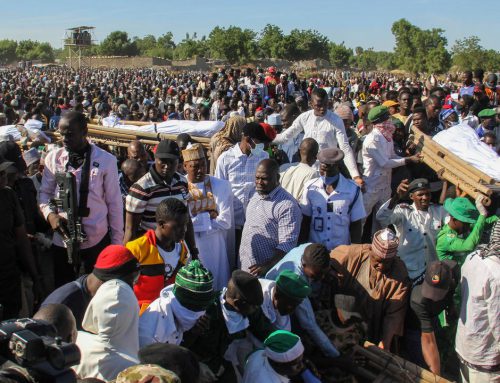The land of Islam and land of war (Dar al-Islam and Dar al-Harb) is one of the most important doctrinal pillars on which violent movements, and extremist groups in the Muslim world base their thoughts on. These groups intend to divert jurisprudential provisions from their historical contexts, and to apply them on a contemporary reality that is completely different from the one in which they emerged. Muslim jurists developed such provisions in an intelligent manner as a reaction to their political and religious reality, thus responding to the pressing issues faced by Muslims at the time. Perhaps the first to respond to this jurisprudential and political necessity is Imam Abu Hanifa, who was the first to develop a political and legal mechanism derived from Islamic jurisprudence and its sources, to determine the relationship between Muslim communities and neighboring communities, based on the clear hints of the Quran and Sunnah. There is a key jurisprudential difference between a situation where Islam prevails, and another where Islam does not rule. The Quran reads, “And never is it for a believer to kill a believer except by mistake. And whoever kills a believer by mistake – then the freeing of a believing slave and a compensation payment presented to the deceased’s family [is required] unless they give [up their right as] charity. But if the deceased was from a people at war with you and he was a believer – then [only] the freeing of a believing slave; and if he was from a people with whom you have a treaty – then a compensation payment presented to his family and the freeing of a believing slave. And whoever does not find [one or cannot afford to buy one] – then [instead], a fast for two months consecutively, [seeking] acceptance of repentance from Allah. And Allah is ever Knowing and Wise.” (Quran: 4/92). Other verses in the Quran reveal a clear difference between the two situations based on the foundation of religion, contrary to what Muhammad Abu Zahra and Abdul Wahhab Khallaf and Al-Zuhaili who argued that the division of the situation into a war and peace has no origin either in the Quran or in the Sunnah.
The two influential scholars in Hanafi school; Abu Yusuf and Abu al-Hasan, advanced the jurisprudence of Abu Hanifa significantly, and followed this issue with a great deal of analysis, division and rooting. These scholars added a third division to the former bilateral one, in which a Muslim country has an agreement with a non-Muslim country (Dar al-‘Ahd), or a predominantly Muslim population that has a non-Muslim ruler, and other additions and interpretations in this regard. The development of these concepts in religious books of jurisprudence examines the fact that the jurisprudence of scholars was in response to a reality they lived in, and that their judgments and decrees changed and evolved according to the time and conditions they were in. Thus, various differences and additions emerged in jurisprudences that followed the reality and opinions of scholars at a given time. The discussion developed from pronouncing judgment regarding a particular situation, be it peace or war, to attempting the application of this situation to reality and to discuss what Muslims should do in similar cases. Our attention here is focused on the flexibility of the Islamic jurisprudence in this subject, and the evidence of this flexibility, and what the Shaafa’is scholars; al-Mawardi, al-Sharbini and Ibn Hajar al-Haitemi, have described as the land of Islam, despite being in a Dar al-Harb, a situation, in which, Muslims are in a land of war and still manage to align themselves in a place and protect themselves and establish their religion without fear, some scholars issued a decree stating that it is prohibited to leave it. Part of the Islamic flexibility is considering applying Islam if the provisions of Islam are spotted there, even though most people are not Muslims, according to Imam Abu Yusuf.
The definition of Hanafi School to Dar al-Islam and Dar al-Harb reflects this flexibility in understanding and theorizing. Scholars said that the land of Islam is considered so, if two conditions are met: the emergence of Islam – or what Abu al-Hasan al-Shaibani calls the appearance of the Imam, and the performance of all rituals of Islam, including group prayer and compulsory charity. The second condition is that everyone in this particular place should be safe, including Muslims and non-Muslims under the rule of Islam. Both conditions are flexible enough to apply, even on our contemporary reality without the need for contemporary jurisprudence on the issue. As evidence of the first condition, the Hanafi school presents a strong proof that the Messenger of Allah (PBUH) used to order the armies of Muslims to stop any fighting, if they saw a mosque or heard the call to prayer in their villages and cities.
With the above situation, and with this jurisprudential flexibility, it is shocking that some radical people who attribute themselves to Islam, continue to consider the rulings of Islam, peace and war, to be the same, arguing that what is stated in books of ancient jurisprudence still applies to our modern world. They dare to label western states as a land of war, which was the case in the past centuries, but they tend to ignore the reality, and fail to recognize that this era is governed by the logic of states, and the logic of contemporary international law, which is moving from the culture of estrangement to the culture of coexistence. Over 300 million Muslims live in non-Muslim countries; enjoy their rights as full citizens, without any fear for their religion, where local laws and international law protect them as well as other minorities. Many Muslims feel secure and safe to practice religion in the European countries, more than they do in the Muslim countries. The Messenger of Allah (PBUH) called for the cessation of any attack against people as soon as a mosque emerges from their city or the call for prayer is heard coming out of their streets. This begs some question about European countries that are full of mosques and Islamic centers?! What about countries in which the Quran is being printed and in which Islamic universities are built and Muslims became ministers and senior officials? And what about countries in which Muslims are free to have their own religious freedom, which many Muslims lack in their own countries.
Based on this point of view, and in light with these political and intellectual transformations, it is absurd and even dangerous to apply the logic of state of war and peace on the reality of international relations today, or to try to understand the relationship of Muslims with others based on that perspective. Many scholars have responded to this argument and have introduced new concepts that coexist with this concept, and that meet the requirements of the situation such as land of faith (Dar al-Istijaba) as of peace as opposed to the land of preaching (Dar al-Dawah), considering that the entire world is the nation of Prophet Mohammed: “And We have not sent you, [O Muhammad], except as a mercy to the worlds.” (Quran: 21/107) Prophet Mohammed came to preach all people and to bring mercy to all of them, some have responded and others have yet to respond, and are still in the preaching process. Some proposed the idea of the situation of Islam, as opposed to the situation of witnessing (Dar al-Shahada), in which Muslims get non-Muslims to testify to their moral and behavioral differences and the teachings of their religion. These jurisprudences, which enriched our jurisprudence, show that there is no legal impediment to recreating a new conception of this juristic issue in a way that puts the Muslims in the role of the message of mercy that came to bring people together and not to set them apart, and to make them more united and live in peace as opposed to war.
*Dr.Tarik Ladjal is Professor of History at Effat University in Jeddah, Saudi Arabia





